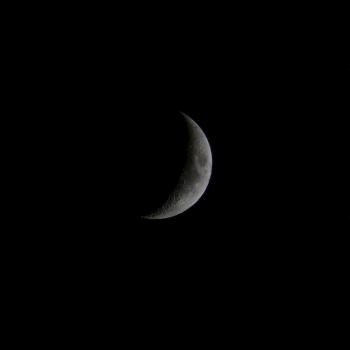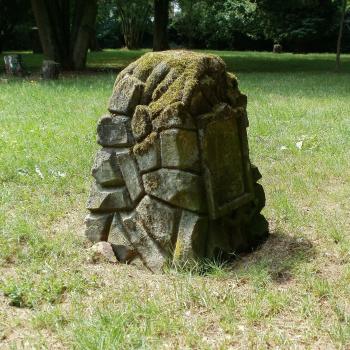I was trying not to write this post. I’ve written a bit about the concept of ‘evil’ in the Otherfaith before, and you can find some of those posts here, here, here, here, and here. I’ve written a lot about problematic behavior, ethics, and ‘good’ and ‘evil’ because they’re a) important topics to discuss in a religion and b) complicated and interesting to contemplate. I was planning to move on from this topic though, since the recent apotheosis of the Dierne deals a lot, whether we see it as peripheral or not, with the triumph of justice over injustice, which a lot of people would call the triumph of ‘good’ over ‘evil’.
(I don’t see it that way. I see the apotheosis as the deification of the Dierne foremost and then, after that, an explanation of how we can become more in tune with our gods. We’re not engaging in some holy war or battle.)
It seemed time to write about this topic again, though, since I’ve seen quite a lot of longer blog posts dealing (sometimes horrifically) with the idea of evil, as well as the almost ever-present ‘faeries are evil awful creatures!’ posts. (Those posts, sadly, usually made by people who call themselves ‘faery workers’.)
I want to say something upfront that has been bothering me immensely about some of the discussions on evil that I’ve seen, though: comparing evil to illness, mental or physical, is incredibly wrong and, frankly, disgusting. People who suffer from mental illness already have stigmas attached to them that make their lives unbelievably difficult. If you say that evil ‘is a mental illness’ or ‘a sickness’ you are contributing to the difficulties mentally ill people face. The rhetoric that evil is a sickness also contributes to the idea that sick people deserve their illness. In a community where sickness is all too often said to be ‘curable’ by ‘giving yourself to the gods’ or ‘working with the goddess’, we really don’t need to perpetuate ideas that evil is comparable to illness. It’s not.
Now that we have that out of the way – let’s get into some more nitty gritty of the Otherfaith and its ethics.
In the Otherfaith, we worship the Four Gods and their related spirits, most of which are faeries. As a part of that work, and in pursuit of becoming Other People (which is where we get the name ‘Otherfaith’ in the first place), we have to rethink a few assumed truths we, as humans, make. In the Otherfaith, we shift toward the faeries and seek to adopt their perceptions and realities. This is the reason that a lot of the myths are told from the perspective of faeries or gods, rather than humans. We don’t cleanse our spaces of all the spirits in them, nor do we banish spirits haphazardly. We try to stop assuming that just because there are human values that we treasure that they are automatically the correct values to have.
(We also, I should note, don’t assume that human values are automatically lesser, as is the trend in some polytheist and spirit worker circles.)
In some places, it is easy for us to understand and relate to the Gods and their spirits. The Other People detest oppression and seek to create sustainable, equal communities that are not built on the suffering of others. That’s a value a lot of humans can understand. The Four Gods prize honesty and hard work, and each spirit does its hardest to find a useful place in the larger world.
But, when we start going deeper, we start twisting ourselves about and watching as the world goes wonky.
Because, in the bloodier stories in the Otherfaith, some human values are tossed out entirely. Life isn’t exactly seen as valuable – the Dierne and Clarene are both noted as having ‘towers’ of bodies behind them, and the Dierne especially is known for killing humans that trespass into his realm and violate his laws, and the Clarene at one point tells him that he’s ‘made her streets bloody’ with the blood of all the humans he’s killed. Most of the otherworldly spaces talked about in the stories have ‘[human] hearts hanging from the trees’ and ‘floors stained with the guts of humans less lucky than [some]’.
The reaction the gods and spirits have sometimes seems completely out of proportion to the crime. And that highlights how different the faeries’ ethics are from our own human ones. In the Otherfaith we don’t adopt the exact same approaches in the spirits have – for example, we don’t believe that the appropriate reaction to street harassment is to harm the person catcalling you – we do seek to rearrange where we place our values. For this reason, blood family isn’t held with as much esteem as it is in other polytheist religions, and we are notably lacking ancestor worship in our practice. (Other People may venerate their ancestors, of course, but it is not part of the Otherfaith.) Chosen family is much more valued, and this is reflected in both the myths and in the actual reality of the Westernlands, where children are adopted into new families rather than raised by their ‘birth’ parents.
But – this post has been a mess. It’s been in my drafts for two days, and I don’t know if I can ever get it better than it is right now. What I was trying to get at was that evil can look very different to different people and entities, and that in the Otherfaith we seek to blend human ethics and values with faery ones, which can place us in interesting situations when it comes to the rest of Western/USian society. In some places we will seem to get on just fine – power, wealth, and fame are not considered bad or un-spiritual in our religion – whereas in others we will feel out of place – because when we work with these gods and spirits, they will challenge our assumptions about what is good and what is wrong and what our place in the world is.












